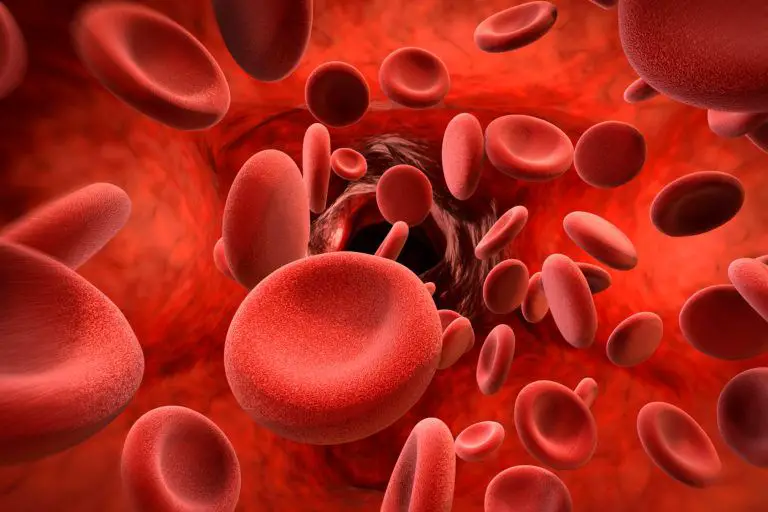
Anemia is a blood cell illness that has severe effects. It is, at the base level, a reduction of the number of red blood cells (RBCs) in blood. This is important because the RBCs contain hemoglobin, which is the part of the blood that carries oxygen around the body. This reduction in oxygen can lead to all sorts of problems. There are hundreds of different types of anemia, but they can be divided into three basic varieties: reduced blood cell production, increased blood cell destruction, and blood loss. These can be caused by heredity, nutritional deficiencies, trauma, or extreme conditions. In all cases, your first step should be to go to the doctor. Your doctor will have the diagnostic tools to figure out the cause and design a treatment. The info below should help you in that discussion, though, and give you a frame of reference!
Symptoms of Anemia
- Loss of energy
- Fatigue
- Rapid heartbeat
- Shortness of breath
- Headache
- Difficulty concentrating
- Dizziness
- Pale skin
- Insomnia
Best Treatments for Anemia
Talk to a doctor.
Anemia is a potentially dangerous condition of which there are hundreds of different causes or combinations of causes. This is something that is beyond figuring out on your own. Your doctor will be able to test your RBC count, hemoglobin concentration, blood volume, and red blood cell width. These can be used to calculate complete blood cell count. Other tests will determine if your bone marrow is doing its job making new blood cells. They can also test feces for blood, which can reveal a potential blood loss from intestinal bleeding, colon cancer, or an ulcer.
Fix underlying problems.
With the help of your doctor, you should be able to determine the underlying problem. Hopefully it’s something that can be fixed. Anemia due to blood loss, like ulcers, hemorrhoids, and gastritis, can usually be treated fairly easily. Anemia caused by pregnancy and menstruation need to be treated differently, for obvious reasons. Sickle cell anemia, aplastic anemia, and thalassemia are inherited conditions that are mostly incurable (but might be manageable). Anemia due to iron deficiency can be managed with lifestyle changes and nutritional supplements. Anemia can also be caused by chronic diseases like cancer, lupus, kidney disease, and liver disease.
Use nutritional supplements.
Iron supplements like ferrous sulfate, ferrous fumarate, and ferrous gluconate can be a part of an anemia treatment plan. But don’t take large quantities of iron pills without the direction of your doctor. It is possible that it won’t help the underlying problem and you could end up overdosing on iron or even poisoning yourself with iron. Iron can also cause some side effects like stomach aches, nausea, constipation, diarrhea, and discolored feces. Folic acid and vitamin B12 are other nutrients you should consider incorporating into your diet. Consult your physician. You can get a bottle of Ferrous Sulfate from Amazon.
Lifestyle changes can be beneficial.
Maintaining a healthy diet rich in iron can be helpful in preventing anemia. Anemia in children is often caused by a lack of iron-rich food. It is also a problem for people who participate in fad diets like veganism, which, if followed incorrectly, can leave out some important minerals and nutrients normally found in animal-based foods. Women who are pregnant or breast feeding need to take care that they are boosting their iron intake to keep up with the increased demand. Anemia can also be related to alcoholism and weight-loss surgeries.
Blood transfusions and hyperbaric oxygen are other options.
Most physicians consider blood transfusions a less desirable option for treating anemia. They can be life saving in the case of severe blood loss in accidents or trauma. A blood transfusion might be a necessity in cases of chronic anemia because a patient might lack the ability to create their own RBCs. They can also be useful for people who are undergoing or recovering from surgery. Hyperbaric oxygen therapy is a method of forcing the absorption of oxygen into the blood stream through the use of a pressurized container.
Best Food for Anemia
In the case of iron deficiency anemia, there is a real possibility to make a difference at home with diet adjustments and nutritional supplements. Eating iron-rich foods like meats, eggs, legumes, and whole grains can help prevent anemia. While taking iron supplements with vitamin C can help your body absorb them better, it is important to avoid taking iron supplements with calcium supplements or antacids. Also, drinks that are high in caffeine are a no-no (tea, coffee, soda, and chocolate drinks). In all cases, be sure to talk to your doctor about adjusting your diet to treat your anemia. There might be other causes that could be potentially dangerous.
Food Remedies for Anemia
Iron-rich foods:
- Red meat, liver, chicken, turkey, pork, fish, and shellfish
- Dark green leafy vegetables
- Legumes such as beans and lentils
- Prunes, raisins, and apricots
- Iron-fortified cereals and breads
Foods with vitamin B12 and folic acid:
- Breakfast cereals and vegetarian food fortified with vitamin B12
- Beef, liver, poultry, and fish
- Eggs and dairy products
- Foods with added folic acid
- Dark green leafy vegetables
- Dried beans
- Bananas and citrus fruits